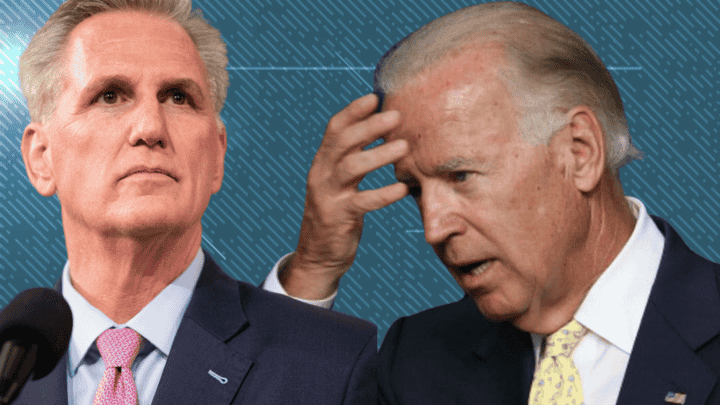The premise of “American Idol” is straightforward: select the best undiscovered singers in the United States and offer them a record deal. With a lengthy audition process that takes place in numerous places across the country, “American Idol” has been a popular show for nearly two decades. Season 1 winner Kelly Clarkson became an overnight sensation, as did initial judges Paula Abdul, Simon Cowell, and Randy Jackson, as well as host Ryan Seacrest.
A CBS television executive told the New York Times that Fox’s blockbuster singing competition was “the ultimate schoolyard bully,” because of how tough it was for other networks to compete during the “American Idol” schedule, which averaged over 30 million viewers each episode in 2007.
Fantasia Barrino, Carrie Underwood, and Jordin Sparks all won the first six seasons of “American Idol,” launching their careers. Winners of “American Idol” have included Clay Aiken, Adam Lambert, and Chris Daughtry (who came in fourth place in the fifth season). Winning “American Idol” has been spoken about a lot over the course of the show’s run, but what do the contestants get in return? A breakdown of the “American Idol” winner’s recording contract is shown here.
American Idol winners’ contracts are less lucrative than they were in the past.
California’s Talent Agency Act is being utilised to combat bad record deals
After being mistreated and not being given the name of his own record until it had been made public, Philips sought a way out of his contract with 19 Entertainment, among other reasons. California’s Talent Agency Act was the key to his success. This legislation mandates that a person or company be licenced to represent an artist before doing so. Untrustworthy individuals will be barred from working in talent agencies, and artists will be safeguarded as a result. Many artists have utilised the TAA to break out of management contracts that they deemed unseemly, even though it is controversial.
According to the TAA, obtaining performance engagements is impossible without the help of a licenced agent. This includes firms in the management sector. This isn’t the first time that musicians have used the TAA to get out of management contracts that are abusive or deceptive. Even if someone or a company manages a performer, that doesn’t automatically qualify them to operate as an agent for the musician. Managers will often book gigs for their clients regardless, and if their contract goes bad, those prior performances can be an entertainer’s golden ticket out of the business.
An official complaint was made against 19 Entertainment by Philips, who claimed that he had been denied information about his career and that he had been coerced into performing for the benefit of the company’s financial interests.

The contract Philips signed before he won Idol was a huge win for the business. As an example, as part of his contract with Philips, 19 earns 40% of the cut when the company obtains endorsements.
The indignities that Philips has had to endure since his success on American Idol were listed in his petition. On the other hand, in 2013 he was obliged to perform a live show without salary in order to help Jet Blue, a sponsor of Idol’s 2013 American Idol live appearance tour. As a result, 19 Entertainment alleged that he was liable to a Merchandise Agreement with an insurance firm that included provisions that included a 40% commission for the company. Rather, Philips argued that the Management Agreement’s 20% commission rate should have been applied.
It’s not the first time an artist has utilised the TAA to get out of a deal
In 1996, Deftones manager Dave Park sued the band, claiming they failed to pay him commissions and thus broke their then-existing agreement with him, according to Forbes. Park’s lawsuit was eventually dismissed. They then went to the California Labor Commissioner and complained that Park had violated the TAA. In the end, Park was found to have broken the TAA by arranging for the band to perform 84 times without a licence. Park’s three contracts with the Deftones have been cancelled. In the end, the court sided with the band, and Park was left with no commissions or legitimate management agreements with the group.

Numerous artists in the state of California have used the TAA to escape contracts. When a manager is repressive or manipulative, as Philips claims he is with 19 Entertainment, the act can appear like a blessing. An artist’s manager must have a TAA licence in order to secure performance engagements, and 19 Entertainment or David Park or any other manager is doing so illegally.
This is a challenge for 19 Entertainment because of its unique structure, which allows it to handle and arrange events on behalf of its clients. A successful outcome for Philips in this case would have a profound impact on the future of Idol, as well as other televised talent shows.
Read More: Louie Louie Lyrics Controversy – The FBI Took Two Years to Investigate the Song “louie Louie.”
The managers’ fight against the TAA is still going strong
Some management businesses and groups have objected to the TAA because they say it’s unfair, according to Variety. Many years ago, the National Conference of Personal Managers brought an appeal against the law. A recent federal appellate court decision gave the group some momentum. On Thursday, March 19, the 9th Circuit Court of Appeals overturned the lower court’s decision to dismiss the NCOPM’s appeal.

Managers argue that the TAA’s prohibition on unlicensed managers “procuring” employment for clients is “unconstitutionally ambiguous.” Judge Dean Pregerson of the U.S. District Court, who dismissed the managers’ complaint in 2013, stated at the time that the TAA already had a clear definition for “procure.”. While Pregerson had rendered a ruling on the merits of the case, the appellate court emphasised that he had not followed through on the procedural component.
When the matter returns to district court, the fate of the contentious TAA will be decided once more.



